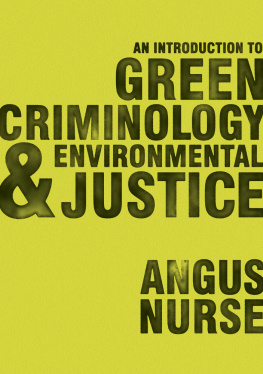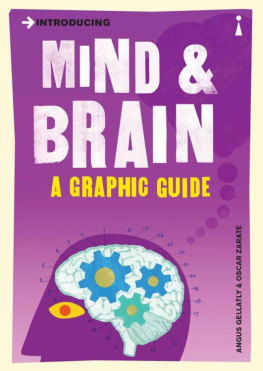Angus - A Redder Shade of Green
Here you can read online Angus - A Redder Shade of Green full text of the book (entire story) in english for free. Download pdf and epub, get meaning, cover and reviews about this ebook. year: 2017, publisher: Monthly Review Press, genre: Science. Description of the work, (preface) as well as reviews are available. Best literature library LitArk.com created for fans of good reading and offers a wide selection of genres:
Romance novel
Science fiction
Adventure
Detective
Science
History
Home and family
Prose
Art
Politics
Computer
Non-fiction
Religion
Business
Children
Humor
Choose a favorite category and find really read worthwhile books. Enjoy immersion in the world of imagination, feel the emotions of the characters or learn something new for yourself, make an fascinating discovery.

A Redder Shade of Green: summary, description and annotation
We offer to read an annotation, description, summary or preface (depends on what the author of the book "A Redder Shade of Green" wrote himself). If you haven't found the necessary information about the book — write in the comments, we will try to find it.
A Redder Shade of Green — read online for free the complete book (whole text) full work
Below is the text of the book, divided by pages. System saving the place of the last page read, allows you to conveniently read the book "A Redder Shade of Green" online for free, without having to search again every time where you left off. Put a bookmark, and you can go to the page where you finished reading at any time.
Font size:
Interval:
Bookmark:
Praise for
A REDDER SHADE OF GREEN
More than just a series of incisive contributions that seeks to integrate Marxist social science and Earth System science, A Redder Shade of Greenis a much-needed call for a new scientific ecosocialism of the 21st century. FEDERICO FUENTES, editor, Links International Journal of Socialist Renewal
Beautifully written, engaging, and illuminating, these essays offer a strong case for ecosocialism as a fusion of the sciences of nature and an updated Marxism, both recast now under the shadow of the Anthropocene.JOHN FORAN, professor of sociology and environmental studies, University of California, Santa Barbara
Ian Angus has long been at the forefront of bringing together the socialist and environmental movements, and these thought-provoking essays demonstrate his wonderful ability to make complex scientific and political ideas accessible. For those fighting for a sustainable society in the face of fossil fuel capitalism, they offer important insights, powerful polemics, and much food for further debate.MARTIN EMPSON, author of Land and Labour: Marxism, Ecology and Human History
OF GREEN
Intersections of Science and Socialism
IAN ANGUS

Copyright 2017 by Ian Angus
All Rights Reserved
Library of Congress Cataloging-in-Publication Data
available from the publisher
isbn (paper): 978-1-58367-644-8
isbn (cloth): 978-1-58367-645-5
Typeset in Dual, and Minion Pro 11/14
Monthly Review Press, New York
monthlyreview.org
5 4 3 2 1
To Evelyn Reed (19051979) and George Novack (19051992),
activists and educators who devoted their lives
to science and socialism.
One basis for life and another for science is a priori a lie.
KARL MARX
Red is the color of socialist revolution. It stands for egalitarian democracy and human liberation, for an end to capitalism and to all forms of oppression.
Green is the color of ecological revolution. It stands for global sustainability and a world where humans live in harmony with the rest of nature.
Red and green together are the colors of ecosocialism, a body of ideas and a movement whose fundamental principle is that there can be no true ecological revolution that is not socialist, and no true socialist revolution that is not ecological.
Ecosocialism aims to build red-green movements based on a social-ecological understanding of the global crisis, to inform and advance radical movements for social and ecological justice. A Redder Shade of Green is a contribution to that effort.
THE ESSAYS, INTERVIEWS, AND TALKS collected here discuss some of the intersections of socialism and science that define eco-socialist politics in the twenty-first century. They cover a variety of topics, united by the conviction that ecosocialism cannot succeed unless it is more than a pious wish for a better world: it must be based on a concrete scientific understanding of how our world has evolved, how it is changing today, and where those changes may take us. The way we build socialism, and the kind of socialism that can be built, will be profoundly shaped by the state of the planet we must build it on. If our political analysis and program doesnt have a firm basis in the natural sciences, our efforts to change the world will be in vain.
The reverse is also true, because the natural sciences only reveal parts of reality. Chemistry and climatology show us that greenhouse gases are rapidly disrupting climate patterns that have existed longer than human beings have walked the earth, and they identify fossil fuel combustion as the primary source of those gases. But by themselves they cannot show why the most powerful governments and corporations have actively resisted any serious action to reduce emissions, nor can they show us how to overcome that resistance. An understanding of Earth System science is necessary for preventing environmental crises, but it is not sufficient.
For Karl Marx and Frederick Engels, socialism had to be based on Wissenschafta word that is usually translated as science, but which has a broader meaning in German: the systematic pursuit of all kinds of knowledge. Marx and Engels used the term scientific socialism not to suggest that it was comparable to chemistry or physics, but as a contrast to the utopian socialisms of the early nineteenth century, which were based on abstract moralism, not on systematic study of capitalism and its material context. For them, there was no wall between social and natural science.
Unfortunately, most of what passes for social science in universities today has abandoned any thought of a unified understanding of human society and the rest of the natural world. Even within environmental sociology, where the best scholars retain that objective, there are many who view human society as somehow exempt from the laws that govern the rest of the Earth System.
In contrast, ecosocialism seeks and is based on a careful and deliberate synthesis of Marxist social science and Earth System sciencea twenty-first century rebirth, if you will, of scientific socialism.
A REDDER SHADE OF GREEN IS A BOOK of debates, polemics, and arguments, because although environmentalists, scientists, and socialists share concerns about the devastation of our planet, we frequently differ on explanations and solutions. We disagree not just with defenders of the status quo, but with one another, and thats healthy. In movements for change, unanimity is more often a sign of lack of thought than genuine agreement. We can only reach real consensus through frank and open debate, and by testing our ideas in actual campaigns to stop environmental destruction.
We dont argue for arguments sake: these are essential debates, part of the process of developing the theory, program, and practice of socialism in the twenty-first century.
One book cannot possibly address all the contentious issues that face ecosocialists today, so I have selected topics that have been of particular interest to readers of the web journal I edit, Climate & Capitalism. For clarity I have grouped these topics under five headings.
1. Natural Science and the Making of Scientific Socialism discusses how Marx and Engels responded to scientific developments in their time. Of course, the fact that they did or said something does not prove it is correct or should be emulated today, but an essential starting point for developing a modern Marxist approach to science is to understand how Marx and Engels approached it.
2. Responding to the Anthropocene addresses the unprecedented challenges posed by the new planetary epoch, and responds to critics on the right and left who are trying to de-legitimize Anthropocene science and convince environmentalists to ignore or reject what Earth System scientists are telling us.
3. Numbers Are Not Enough considers aspects of the overpopulation myth that Simon Butler and I were not able to address in our book Too Many People?, and discusses why populationist ideology continues to attract support from people who are sincerely committed to building a better world.
4. Saving Species, Saving Oceans reviews two important and very different books on how human activity is destroying the habitats of the animals with which we share the planet, and what can be done to prevent catastrophic declines in the wildlife that depends on forests and oceans.
Next pageFont size:
Interval:
Bookmark:
Similar books «A Redder Shade of Green»
Look at similar books to A Redder Shade of Green. We have selected literature similar in name and meaning in the hope of providing readers with more options to find new, interesting, not yet read works.
Discussion, reviews of the book A Redder Shade of Green and just readers' own opinions. Leave your comments, write what you think about the work, its meaning or the main characters. Specify what exactly you liked and what you didn't like, and why you think so.











